- Why classic games continue to stay relevant over the years
- The fundamentals of cult games
- 1. The nostalgia factor
- Nostalgia in competitive gaming
- 2. Timeless game design
- Game mechanics that stand the test of time
- 3. Cult games have unique aesthetics and atmospheres
- The influence of atmosphere in RPGs
- 4. They’re challenging, but fair
- Why the challenge keeps you hooked
- 5. Strong modding communities
- Conclusion: timeless appeal
Why classic games continue to stay relevant over the years
Hey, fellow gamer! You’ve probably noticed by now that some games just don’t seem to age. They hold their place in digital libraries, they get re-released or remastered, and even after decades, they’re still being discussed as if they came out just yesterday. These **cult games** have built-in fandoms that span across generations, and they still manage to draw attention from both old-timers and new gamers alike. But what’s the magic behind their continuing **popularity**? What makes these games so timeless, even when modern titles keep pushing the envelope in terms of graphics and gameplay?
It’s a fascinating topic to dive into, especially when you think about how fast the gaming landscape evolves. Today, let’s look under the hood and break down why certain games remain popular, long after their initial release, and seem to retain their charm for years – if not decades.
The fundamentals of cult games
Before we go deeper, let’s clarify what we mean by **cult games**. These are titles that might not have been groundbreaking successes upon release (though some were), but over time, they gained a devoted following. They’re games that people look back on constantly because they managed to do something right – whether it be an innovative idea, a unique style, or some crazy fun factor. Think about games like **The Elder Scrolls III: Morrowind**, **Half-Life 2**, or **Counter-Strike 1.6**. These are games that have a hardcore fan base that just won’t quit playing or talking about them.
1. The nostalgia factor
Nostalgia is a powerful feeling, and if we’re being real, many of us grab a controller or fire up the PC just to relive some good old days. Games like **Super Mario 64** or the original **Doom** were often the first gaming experiences for many people. Returning to them allows players to step back into a time when things might have been simpler, and video games were still full of endless possibilities.
But it’s not just about warm, fuzzy memories. Nostalgic games offer a sense of comfort and familiarity. Modern games are great, but they also come with complicated stories, system updates, microtransactions, and bloated features. Booting up an old classic? It’s like sliding into a well-worn shoe.
Nostalgia in competitive gaming
Even competitive games have their own nostalgia-riddled entries. Take a look at the **Warcraft III** or even **StarCraft: Brood War**. Even now, esports in these games are alive and kicking. People return to these games to enjoy those same intense moments they experienced years ago, just now with updated strategies and competitive flair.
2. Timeless game design
If you think about true classics, you’ll recognize that their mechanics just don’t get old. Let me hit you with an example—**Tetris**. It’s probably the purest gameplay loop you’ll ever find, just line up the falling blocks and boom—hours pass. Or take **The Legend of Zelda: Ocarina of Time**, which basically wrote the book for what future 3D action-adventure games should feel like.
Many cult games have **timeless mechanics** that don’t age because the core loop they offer is fun, accessible, and endlessly rewarding. Great mechanics, combined with universal ideas like exploration, survival, or solving puzzles, mean that future players don’t feel like they’re playing something outdated. It’s why **Civilization V** still rocks multiplayer matches, and why people continue to sink hours into **Final Fantasy Tactics** long after they’ve “seen it all.”
Game mechanics that stand the test of time
- Metroidvania design: Games like **Super Metroid** and **Castlevania: Symphony of the Night** nailed this design so effectively that even modern indie games use it.
- Turn-based strategy: Think of games like **X-COM: UFO Defense** or **Heroes of Might and Magic III** where the core strategy elements are so solid that fan communities never stopped playing.
- Platforming excellence: Though simpler, games like **Super Mario World** continue to be extremely rewarding because of how tight their mechanics are.
3. Cult games have unique aesthetics and atmospheres
Some games just stand out because of their **music**, **art style**, or **worldbuilding**. These aspects are harder to define but make a huge impact when it comes to how fondly these games are remembered. Let’s talk about **Shadow of the Colossus**, as an example. The game had such a captivating minimalistic design that other games in the action-adventure genre couldn’t touch. Another great example is the distinctive cyberpunk visuals found in **System Shock 2** or the gripping, desolate atmosphere of **Dark Souls**.
The influence of atmosphere in RPGs
When it comes to RPGs, the setting is crucial, and cult games tend to have **immaculate world-building**. Games like **Fallout 2** create a gritty, compelling post-apocalyptic world that gamers can’t help but revisit. The same could be said for **Deus Ex** with its branching storylines and richly crafted dystopian future. The atmosphere these games built allowed players to get fully immersed, and that’s the secret sauce of why people keep coming back.
4. They’re challenging, but fair
Let’s admit it—today’s games often hold your hand a bit too much. You know how it goes: tutorials that last forever, hints popping up left and right, and difficulty levels that can sometimes feel like a cakewalk. But when you look back at certain classic cult games, many of them didn’t coddle you, and that was part of the appeal. Challenge can breed commitment.
Games like **Demon’s Souls** or **Contra** didn’t spoon-feed players. You had to “git gud” as the saying goes. Yet, these games were never unfair. They had clear rules, and loss or errors were almost always due to player mistakes. This tight balance created a deeper relationship between players and the game, as it pushed you to improve, learn, adapt—and ultimately conquer.
Why the challenge keeps you hooked
- Dark Souls: The difficulty spike is well known, but players respect how it doesn’t insult their intelligence.
- Mega Man series: Requires precision and memorization, but the gameplay loop remains addictive.
- Street Fighter II: Perfecting moves in competitive matches created an entire scene around mastering combos.
5. Strong modding communities
If a game has been around for over a decade, part of that longevity is likely thanks to its player community. And those communities will breathe new life into a game long after its developers have moved on. Modding is key here. Take **The Elder Scrolls III: Morrowind**, for instance. Morrowind has one of the longest-lasting modding communities out there, with fans still creating new quests, new items, improved textures, and even entirely new mechanics.
Other massive examples include **The Sims** community, which is still churning out mods like custom houses, characters, and pets. Then there’s **Half-Life 2**, a game that sparked endless fan-made stories, levels, and total conversions like the ever-popular **Garry’s Mod.** Mods ensure that even when you’ve “finished” the base game, there’s always something new to explore.
Conclusion: timeless appeal
So, why do some games just stand the test of time and build that cult-like following? Why don’t the new shiny releases push them out of memory? For many of these cult games, it boils down to a combination of **timeless mechanics**, **unique atmosphere**, **engaged communities**, and a good dose of **nostalgia**. They’re games that came along during pivotal moments in gaming history and did something that stuck—whether that’s building a world so immersive, refining gameplay loops so finely, or simply being challenging in all the right ways.
If you’ve not played some of these iconic titles, I encourage you to dive in. They may be decades old, but you’ll probably be surprised at how well they hold up today. And if you’re a veteran of some of these classics, maybe it’s time for another lap. Go dust off that copy, fire it up, and remind yourself why that game became legendary in the first place.
Share your experience in the comments, and don’t forget to check out game forums or communities to connect with other fans. Long live these cult classics!

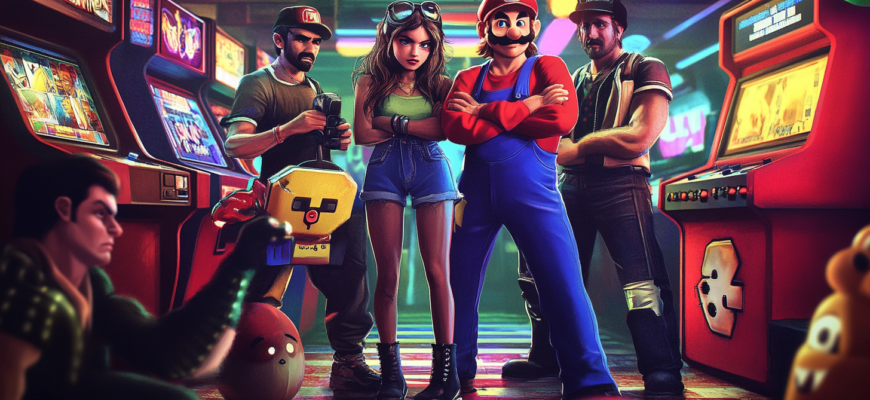
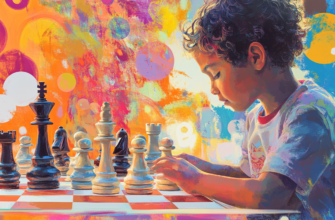
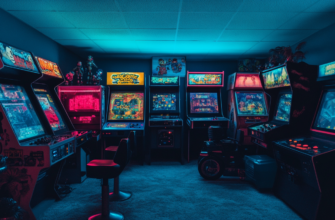
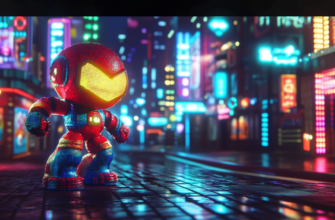


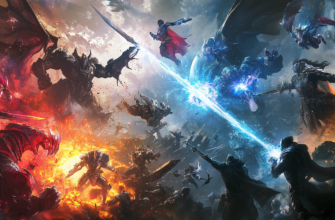

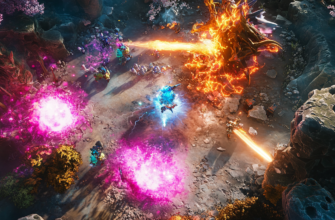
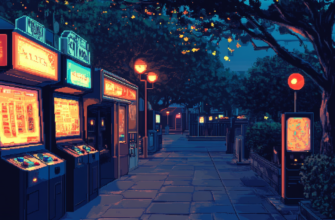





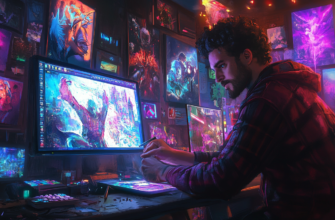

I really like your blog.. very nice colors & theme.
Did you make this website yourself or did you
hire someone to do it for you? Plz reply as I’m looking to create my own blog and would like to
find out where u got this from. kudos
my web site … Live Draw Macau